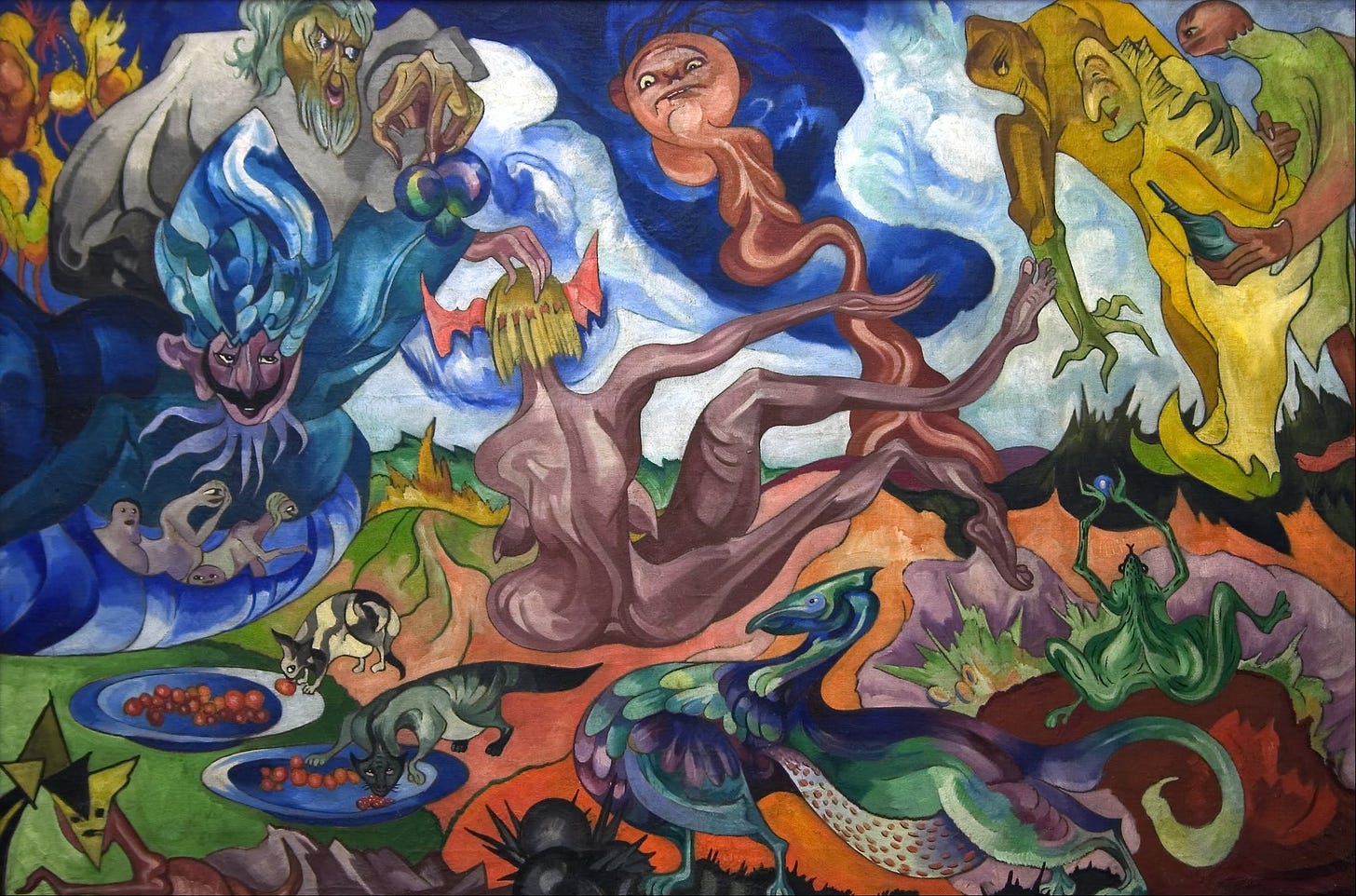Ukraine is not your utopia
Margaret Atwood, George Pattison, Nataliya Shpylova-Saeed, Anastasia Shteinert, Timothy Snyder, Aaron Wendland, and Volodymyr Yermolenko on culture in wartime

“One of the lessons that we Ukrainians have learned from this war is that we will not survive without our society and our society will not survive without us, without our individual responsibility,” writes Volodymyr Yermolenko. “I think this idea gives you simultaneously a sense of responsibility and modesty.”
Since Russia’s full-scale invasion, new acts of resistance and rituals of care have emerged—in Ukraine and around the world. This week at Public Seminar, Timothy Snyder considers the freedom of speech embodied by the “Zelensky paradox” of choosing to stay in a war zone. George Pattison observes that Putin has good reason for citing Dostoevsky as a proponent of Russian exceptionalism, but whether Russian neo-imperialists should get to claim the author’s cultural legacy is another question. And Margaret Atwood—yes, that Margaret Atwood—chats with Aaron Wendland about what kind of “good” fiction can do, given that the pen is not actually “mightier than the sword.”
Meanwhile, enrollment in Russian studies at US universities is declining, reports Anastasia Shteinert. Is that a good thing? Nataliya Shpylova-Saeed considers the political factors at play in Ukrainian scholars’ struggle to establish academic credibility. Nataliia Viatkina adds: “I would like to remind my Western colleagues who want to foster academic dialogue with the Russian academy that there are no conversation partners left in Russia.”
This special issue of Public Seminar was produced in partnership with Studia Philosophica Estonica.
The Sword Is Mightier Than the Pen
Margaret Atwood and Aaron Wendland
Atwood: I was a Victorianist once upon a time, and the Victorians created a huge number of utopias. In fact, the Victorians produced so many utopias that Gilbert and Sullivan wrote a parody of them called “Utopia Limited.” In any event, the Victorians wrote fictional utopias, some of them quite bad; others became classics. But they had real utopias too. And a lot of real utopians moved to North America because they could get cheap land. I followed their histories with great interest, as you might expect. A lot of these utopias went pear-shaped because they weren’t very practical.
I think my favorite example was called “Fruitlands.” It was a bunch of transcendentalists who were going to live on nothing but fruit, plus vegetables that grew upwards. So no potatoes. Vegetables that grew upwards because that was an aspirational direction. The vegetables that grew downwards were too earthy. The problem was that none of them knew anything about growing fruit. Or anything else, as it turned out. How long did that last? About six months. If you’re going to have a utopia, you really need to start with the material world.
To Know Your Enemy’s Face
Anastasia Shteinert
Many have noticed that the war in Ukraine accelerated the process of the “decolonization” of Russian studies. More and more students are shifting their focus from Moscow and Saint Petersburg to Ukraine, Central Asia, and the Caucasus region. While some see this as a positive trend, others remain critical. In our conversations, two American academics pointed out that the choice of topics within the decolonization framework is often driven by the pursuit of funding. At the same time, Alexandra Shapiro noted that increased focus on other countries in the Eurasian region is unlikely to replace interest in Russia.
Ukrainian Studies Struggle Against Imperial Heritage
Nataliya Shpylova-Saeed
The Russian language certainly was one of the aspects of cultural diversity that Ukraine had long contained and offered. However, programs encouraging learning and speaking Russian in Ukraine should have mentioned that the Russian language was weaponized to eliminate Ukrainian identity. This colonizing aspect of the Russian language was largely dismissed outside the Ukrainian studies. Puzzlingly, the Ukrainian language—the official language of Ukraine—was dismissed in favor of Russian, which for centuries was promoted in and imposed on Ukraine to suppress Ukrainian culture and eliminate Ukrainian identity.



